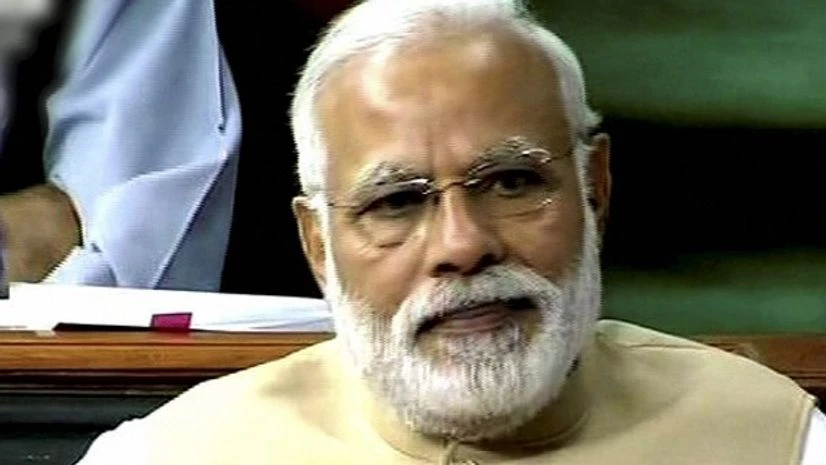The Union Cabinet on Wednesday approved the National Health Policy, aimed at ensuring free health services in villages.
First issued as a draft in 2015, the policy aims at tackling non-communicable diseases, upgrading district health centres and ensuring the improvement of immunisation facilities in district health centres.
Non-communicable diseases include diabetes and kidney ailments. The government has begun training the personnel that will be deployed in rural areas.
The policy also aims to ensure enough public health facilities in rural areas. As of March 2016, 25,354 primary health centres (PHCs) were operational.
While the major focus of the National Health Policy is on non-communicable diseases, the government will work to ensure maternal health, and child and adolescent health at the district centres.
While the National Health Policy’s (2017) target is to spend 4-5 per cent of gross domestic product (GDP) on healthcare services, India has not been spending 2 per cent of GDP to provide healthcare services.
More From This Section
During discussions the government planned to use health insurance programmes to tackle the lack of fiscal buoyancy. The government is also working towards digitising the health records at the district health centres. The policy aims at ensuring there is enough capacity at all public health centres (PHCs).
The government will also work to create quality laboratories where key tests can be performed.
The government’s focus through the policy is also alternative methods of treatment — AYUSH. This will be through developing infrastructural facilities of teaching institutions, improving the quality control of drugs, capacity building of institutions and professionals, building research and public health skills of practical utility and initiating community-based AYUSH interventions for preventive and promotive healthcare. The new health policy comes 15 years after the last policy was introduced. The old policy was introduced in 2002. The chairman of the health committee at the PHD Chamber of Commerce, Nishant Berlia, said: “The new policy is a welcome move because there was a need for an updated health policy.”
CBM producers can now use gas for internal consumption
The Cabinet Committee on Economic Affairs (CCEA) also allowed companies producing coal bed methane (CBM) to sell gas to its own affiliates, by giving marketing and pricing freedom for CBM. This is likely to be a boost for companies like Reliance Industries, Great Eastern Energy Corporation, Essar Oil and Oil and Natural Gas Corporation, which are the major players in the segment.
According to the decision, while discovering the market price for arm’s length sales, the contractor has to ensure a fully transparent and competitive process for sale of CBM with the objective that the best possible price is realised for the gas without any restrictive commercialpractices.
CBM contractors have also been permitted to sell the CBM to its any affiliate, in case the contractor cannot identify any buyer. Royalty and other dues to the government, however, shall be payable on the basis of Petroleum Planning and Analysis Cell (PPAC)-notified prices or selling prices, whichever is higher. The policy is expected to incentivise the CBM operation in the country to boost gas production.
Dearness allowance hiked by 2%
The Centre on Wednesday increased dearness allowance and dearness relief to 4 per cent from existing 2 per cent from January 1, 2017.
“The Union Cabinet chaired by Prime Minister Narendra Modi has approved release of an additional instalment of dearness allowance to central government employees and dearness relief to pensioner with effect from January 1, 2017,” an official statement said.
The DA/DR has been increased by 2 per cent over the existing rate of 2 per cent of the basic pay/pension to compensate for price rise and it is in accordance with the accepted formula based on the recommendation of 7th Pay Commission, the statement said.
The statement said that the combined impact on the exchequer on account of both dearness allowance and dearness relief would be Rs 5,857.28 crore per annum and Rs 6,833.50 crore in the Financial Year 2017-18 (for a period of 14 months from January, 2017 to February, 2018).
Govt approves Rs 2,147-cr highway project in UP
The Cabinet on Wednesday cleared a Rs 2,147.33-crore project for widening of Handia-Varanasi stretch in Uttar Pradesh, the first highway project approved by the Centre in the state after BJP's resounding victory in Assembly polls.
This project has been awarded under the government's flagship road building programme — National Highways Development Project (NHDP) Phase-V.
“The Cabinet Committee on Economic Affairs (CCEA), chaired by Prime Minister Narendra Modi, has given its approval for development of the six laning of Handia-Varanasi section of NH-2 in Uttar Pradesh,” the Ministry of Road Transport and Highways said in a statement.
The project will be built on the Hybrid Annuity Mode (HAM).
“The cost is estimated to be Rs 2,147.33 crore including cost of land acquisition, resettlement and rehabilitation and other pre-construction activities. The total length of the road will be approximately 73 kms,” the statement said.
The project will lead to the improvement of infrastructure in Uttar Pradesh and reduce the time and cost of travel for traffic, particularly heavy traffic, plying on this stretch.

)
